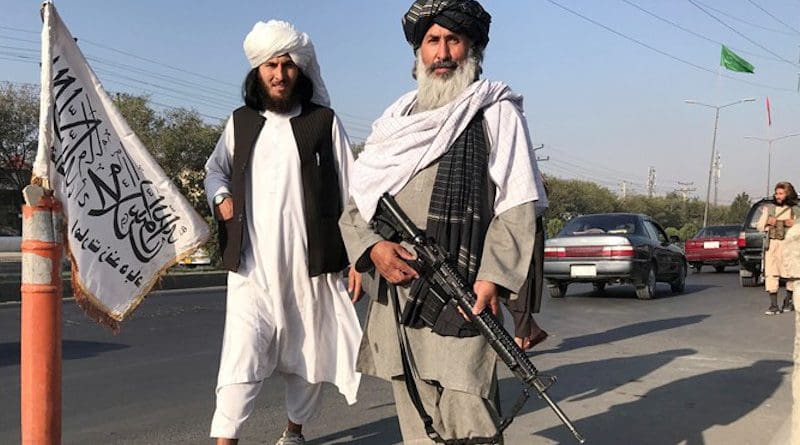TTP-TTA Nexus: A Hard Nut To Crack For Pakistan – OpEd
Afghanistan under the rule of Tehreek Taliban Afghanistan (TTA) has ruled out all the hope and struggles that Pakistan had made to bring a friendly government in Kabul to ensure peace inside the country and in the region as a whole. Afghanistan served as a buffer state in the time of British and Soviet expansionism.
After 1947, Pakistan wished to have good and cooperative relations with the neighboring countries, but the people sitting in Kabul were of the other view. The India factor and the hostility from the Afghanistan side always urged Pakistan to seek some strategic depth in terms of a friendly regime so that the country may not be exploited by any external power against Pakistan. When in the 1990s, the Taliban came to power, Pakistan recognized their government as legitimate without any hesitation. One of the major reasons behind urging the Taliban to come to the negotiation table with the US was to highlight the political significance of the Taliban for Pakistan.
A major faction in Pakistan believed that if the Taliban would come to power, security problems at the western front of the country will be resolved. But it has occurred otherwise. For Pakistan, there are two major problems. First is its relations with TTA, and second is how to manage Tehreek Taliban Pakistan (TTP). Both situations are interlinked as both factions are interlinked.
The counter-terrorism efforts that Pakistan had put in cutting TTP to its size look fading. With the rise of TTA, TTP is mounting its head again. Both factions have the same motives. One wants to establish Sharia in Afghanistan while the other wants it in Pakistan. Such ideological similarities matter for both factions more than the Taliban’s relations with Pakistan. TTP both looks at TTA as a role model. It is more like an inspiration for former to seek help and guidance from their brothers in Afghanistan. Pakistan was expecting that TTA would help in curtailing the threats from TTP to the country. But after coming to power, the Taliban in Afghanistan has supported later with various means.
Operationally, the Taliban freed around 2,000 TTP terrorists who were jailed in Afghanistan by the Ghani government. When Pakistan asked the Taliban to control the TTP, they asked Pakistan to answer TTP’s grievances first. They refused to recognize the Durand Line. As the public resentment against Pakistan has grown further during Ghani government, Taliban to seek internal legitimacy are playing Duran Line card. Zabiullah Mujahid, Acting Information Minister of the Afghan regime said, “the issue of the Durand Line is still an unresolved one, while the construction of fencing itself creates rifts within a nation spread across both sides of the border. It amounts to dividing a nation.”
Neither TTP nor TTA accepts the fencing of the border. It is variously reported TTP terrorists trying to cut the fencing. From the Taliban side, the unfortunate event occurred on November 19 at Dand Patan in Kurram Agency. Taliban soldiers protested when Pakistan army soldiers were putting up fences. This TTP-TTA nexus is causing problems for Pakistan. Since the Taliban came to power, terrorist attacks have increased by 56% in the Pakistan.
Different factions of the TTP coalesced in Afghanistan. According to a UN report, “unification took place in Afghanistan between TTP and certain splinter groups in the period from December 2019 to August 2020”. These groups included Jamaat-ul-Ahrar, Hizb-ul-Ahrar, Usman Saifullah Group, Shehryar Mehsud Group, and Amjad Farooqi group. The major point to note here is that Al-Qaida remains the common ally of TTP and TTA. Most recently when TTP terrorists made soldiers of the Counter-Terrorism Department hostages, they demanded safe passage to Afghanistan. Pakistan asked the Taliban to intervene but to no avail.
Pakistan is facing a dilemma as everything is going beyond expectations. The role it has played in bringing stability to Afghanistan has been forgotten by the Afghan people and the Taliban as well. Beyond the shadow of any doubt, it is the right of the Taliban to have their own policies. But when something has been agreed upon, it must be respected. In the Doha peace deal, the Taliban affirmed that Afghan soil would not be used by any terrorist outfit against any country. But after coming to power, they have shown no willingness to curtail these ideologically similar terrorist groups. That is the reason this time, Pakistan has been very careful in its approach toward recognizing the Taliban. Later has been using TTP as a card to seek compensation. But Pakistan would not establish any diplomatic relations with the Taliban until this support to terrorist outfits is stopped and commitments from the international community are fulfilled.
It is a hard time for the country amidst uncertain situations at its western border and surging terrorism inside again.


The Durand line was signed by the British to be in place for 100 years. 100 years have passed and expired, therefore it’s no longer valid.
The successive governments of Afghanistan continue to rectify the Duran line as international border. Hence validity continues. Peace and stability in Afghanistan is a collective responsibility let’s add to it instead of creating problems.